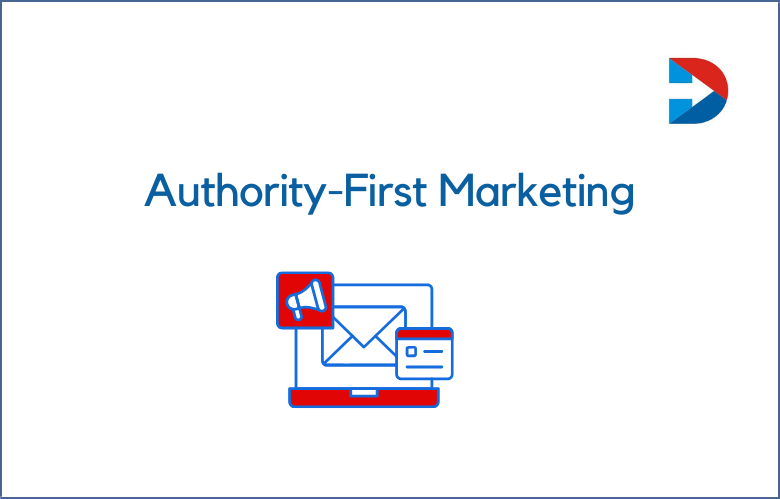
In today’s highly competitive higher education industry, it is more important than ever to have a strong marketing strategy.
That means understanding the needs of your target audience and utilizing effective tactics to attract and retain new students.
Here are some strategies that can help you boost your university’s visibility to reach more students.
As a university marketer, you know that attracting and retaining students is critical to the success of your institution. To do this, you need an effective university marketing strategy.
The right approach should be comprehensive, considering all aspects of the student experience, from initial research to post-enrollment. Let’s look at some of the most effective strategies for university marketing.
How do you create a booming university marketing plan?
Creating a successful university marketing plan starts with a comprehensive understanding of the institution, its goals, and its target audience.
A thorough analysis of current market conditions and trends is essential for developing effective strategies.
To begin the process, it’s essential to identify the university’s brand identity and create messages that can effectively convey it to students, alumni, parents, faculty, staff, and other stakeholders.
The main marketing messages should be consistent across all channels—including digital media—and focus on the institution’s unique characteristics.
It’s also important to consider which channels will reach each target audience successfully.
The power of Social Media in University Marketing: Tips and Best Practices?
Social media is a potent tool for universities to use in their marketing strategies. It enables universities to reach potential students, alumni, industry professionals, and the public in ways that were never possible.
With social media, universities can create engaging campaigns and build relationships with their target audiences.
One of the essential tips for university marketers is to focus on building relationships rather than just pushing out messages.
Establishing a presence on multiple platforms and actively engaging with followers consistently is Important.
Universities should develop a plan for how they will interact with their audience members, what content they will share, and how often they will post updates.
Am I understanding the importance of SEO in University Marketing?
Search engine optimization (SEO) is essential to any university’s digital marketing strategy. SEO improves a website’s visibility and ranking on search engines like Google, Bing, and Yahoo.
This can be accomplished through various tactics, including keyword research, link building, content optimization, and more.
Higher rankings mean more potential students can learn about your university, leading to more leads and applications.
On-page SEO involves optimizing all web page aspects so that search engine crawlers can easily understand what it’s about.
This includes optimizing page titles, meta descriptions, headings, and content with relevant keywords related to each page’s subject matter.
Using keywords strategically in content also helps boost organic ranking for those pages by giving search engines context for what the page is about.
Off-page SEO involves activities such as backlinking from other websites related to your university or industry to increase your website’s authority in the eyes of search engines.
You are targeting Gen Z: How do you tailor your university marketing to a new generation?
Reaching Gen Z, the generation born between 1996 and 2010, can be a daunting prospect for university marketing departments.
While this generation is considered more informed, tech-savvy, and diverse than any previous one, it also presents marketers with unique challenges and opportunities.
To effectively target Gen Z with your university’s marketing strategy, several tips can help you tailor your approach to their needs and wants.
First, it is essential to recognize that Gen Z is the most digitally connected and diverse generation yet. As such, digital platforms should be the primary focus of your marketing efforts.
This means investing in social media campaigns and ensuring your website is up-to-date with fresh content and engaging visuals.
Moreover, Gen Zers respond positively to authentic messaging that speaks to them personally—so don’t be afraid to showcase real students on your websites or social posts!
What is the role of Influencer Marketing in University Recruitment?
In recent years, the role of influencer marketing in university recruitment has become increasingly important.
With the ever-growing prevalence of social media, it is now easier than ever for universities to target prospective students and engage them intimately.
Through influencer marketing, universities can reach out to and build relationships with a larger audience by leveraging the power of influential individuals in their industry.
Influencer marketing to attract and recruit prospective students is an effective way for universities to increase brand visibility and awareness among their future audiences.
Universities can create meaningful content that resonates with potential students by partnering with relevant industry specialists and social media influencers in their field.
Through strategic collaborations with key influencers, universities can leverage existing networks of followers to generate more targeted leads for recruitment.
Building a robust Brand Identity for Your University: Marketing tips and tricks?
Creating a solid brand identity for your university is essential for success in recruitment, fundraising, and other business areas.
University branding includes marketing campaigns, visuals (logo, colors), words (taglines, slogans), and more.
Developing an effective marketing strategy to promote a strong brand identity requires attention to the following details:
Establish Your University’s core values
Before creating a brand identity, defining your university’s core values or pillars is essential.
Ask yourself what makes your university unique and then use that as the foundation for developing a messaging strategy.
This process can be done through market research, including surveys and interviews with alumni, faculty members, and current students.
Choose colors and logos.
Colors play an essential role in the psychology of communication and can affect how potential customers perceive your brand.
Similarly, logos are often the first thing customers recognize when encountering a business; be sure to create one that resonates with your target audience.
Utilize social media platforms.
Social media is an excellent way for universities to reach out to potential students both online and offline by creating posts about upcoming events or promoting different programs offered at the university.
Social media can be used to raise awareness about topics related to higher education, such as student success stories or scholarships delivered at the university.
Develop catchy taglines/slogans.
Taglines and slogans are memorable phrases designed to connect people with your brand’s message instantly – make sure yours stands out from the competition!
After defining your core values, brainstorm words or phrases that will appeal to potential clients while simultaneously reinforcing them.
Create content that reflects who you are
Content creation is essential in developing effective marketing campaigns; create videos or podcasts focusing on what makes your university unique – this will help you stand out from other institutions!
Consider partnering with influencers who have significant followings;
This will help boost engagement rates for any promotions you might have related to university initiatives, such as open house days or new degree programs being launched.
These tips and tricks will help you develop a successful branding campaign for your institution – good luck!
What are the benefits of video marketing in university recruitment?
Increased Engagement
Video marketing can increase engagement with potential university students.
Videos can provide an overview of the university, its campus, and its facilities.
They can also introduce potential students to the university’s faculty and staff. Videos can showcase the university’s research and academic programs.
Greater reach
Another benefit of video marketing is that it can help to reach a wider audience than traditional marketing methods.
Videos can be shared online through social media, email, and other websites.
This allows potential students who may need to become more familiar with the university to learn about it and its programs.
More engaging than text:
Videos are more engaging than text-based content like website articles or brochures.
This is because videos are more visually stimulating and can hold viewers’ attention for extended periods.
Videos can convey information more concisely and effectively than text-based content.
Cost-effective
Video marketing is also a cost-effective way to market the university to potential students.
Videos can be produced cheaply and do not require significant time or resources.
Once a video is created, it can be used multiple times without incurring additional costs.
Timeless content
Another benefit of video marketing is that videos can be reused in future years without becoming outdated.
This contrasts traditional marketing materials such as print ads or billboards, which often need to be updated regularly to reflect changes at the university, such as new programs or facilities.
Videos can be edited easily to add new information or remove outdated information.
Increased website traffic
Video marketing can also help to increase traffic to the university’s website. This is because people who view videos are more likely to visit the website than those who do not view videos.
People who view videos are more likely to share them with others, which can further increase website traffic.
Personalization in University Marketing: Strategies to engage prospective Students?
Tailor Communications
Universities should tailor messaging based on demographic information such as gender, age, location, interests, and academic goals to speak directly to each individual’s unique needs.
This allows universities to have more meaningful conversations with prospects by sending them messages that resonate with their circumstances.
Data-Driven Content
By utilizing data-driven content such as predictive analytics, universities can better understand what topics prospective students care about and provide more relevant materials.
This type of personalized content can help attract more qualified leads and offer a better way for universities to tell their stories.
Automated Marketing
Automation is essential for any successful marketing program because it helps target specific audiences, personalize campaigns, and measure results.
Automated email campaigns allow universities to send out personalized emails based on prospect behavior or demographic information so they can continue engaging them after they’ve left the site.
Social Media Outreach
Social media allows universities to reach many potential students quickly while still providing personalization through targeted ads or content curation explicitly tailored for different audience segments.
Social media lets prospects interact directly with the university by asking questions or commenting on posts, allowing universities to form relationships early in recruitment.
Maximizing ROI in University Marketing: Key Metrics to Track and Analyze?
Website Traffic
Website traffic is one of the most critical metrics for university marketing.
This metric will give you an idea of how many people are visiting your website and can be used to gauge the effectiveness of your marketing campaigns.
There are several ways to increase website traffic, such as optimizing your website for search engines, running online ads, and using social media.
Engagement Rate
Another critical metric to track is the engagement rate, which refers to the percentage of people who take action on your website after landing.
Actions can include subscribing to a newsletter, downloading a brochure, or filling out a contact form.
A high engagement rate indicates that people are interested in what you say and are more likely to convert into leads or customers.
Lead Generation Rate
The lead generation rate is another critical metric to track, as it measures the number of information that your university marketing campaigns generate.
A lead has expressed interest in your university by providing their contact information, such as their name and email address.
A high lead generation rate indicates that your marketing efforts are practical and that people are interested in learning more about your university.
Application Volume
Another important metric for university marketing is application volume, which refers to the number of applications your university receives.
This metric can be used to gauge the effectiveness of your marketing campaigns and also gives you an idea of the level of interest in your university.
If you notice a decline in application volume, it may indicate a problem with your marketing efforts, and you may need to make some changes.
Acceptance Rate
The acceptance rate is another crucial metric, measuring the percentage of applicants offered admission to your university.
This metric is important because it gives you an idea of how competitive your university is and how well your marketing efforts work.
If you notice a decline in the acceptance rate, it may indicate a problem with your marketing efforts, and you may need to make some changes.
Yield Rate
The yield rate is another key metric, as it measures the percentage of accepted students who ultimately decide to enroll at your university.
This metric is important because it gives you an idea of how effective your marketing efforts are at converting accepted and enrolled students.
If you notice a decline in yield rate, it may indicate a problem with your marketing efforts, and you may need to make some changes.
Conclusion
Effective university marketing requires a combination of different tactics that work together seamlessly to achieve success.
By utilizing social media strategies, content marketing tactics, and influencer outreach campaigns, universities can effectively reach new students while engaging with existing ones – ultimately driving enrollment numbers up year after year.
University marketing strategies are essential for attracting new prospects and increasing enrollment numbers.
While traditional methods like word-of-mouth advertising still play an essential role in recruitment efforts, digital tools such as retargeting and personalization offer potent ways for schools to reach out directly to their target audience cost-effectively. With the right strategy, universities will surely attract more students than ever!



